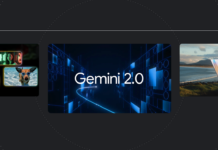In the rapidly evolving world of web hosting, it’s essential to clarify the distinctions between various service providers and the platforms they support. Today, we bring to light an important issue surrounding WP Engine, a prominent name in the web hosting industry, and its relationship with WordPress.
WP Engine vs. WordPress: Understanding the Difference
First and foremost, it’s crucial to understand that WP Engine is not synonymous with WordPress. This misunderstanding is common, even among seasoned users. WP Engine is a company that provides managed hosting services specifically tailored for WordPress websites. However, it is not an official part of the WordPress organization or its management.
WordPress is an open-source content management system (CMS) that powers a significant portion of the web. It is renowned for its flexibility, ease of use, and robust community support. WP Engine, on the other hand, offers hosting solutions designed to optimize the performance and security of WordPress sites. Despite their close association, WP Engine operates independently and has its own policies and practices that can significantly impact users.
The Core Issue: Disabling Revisions
One of the fundamental features of WordPress is its revision system. This system tracks every change made to content, enabling users to revert to previous versions if necessary. This is akin to the version history in Wikipedia, where you can see and restore earlier edits. This feature is integral to WordPress’s promise of safeguarding user content.
However, WP Engine has been disabling this critical feature across its 1.5 million WordPress installations. According to their support page, WP Engine justifies this by claiming that revisions slow down sites. In reality, this measure primarily serves to reduce their storage costs, undermining the core functionality of WordPress.
The Impact on Users
Disabling revisions has significant implications for users. Without access to previous versions of their content, users risk losing valuable data if a mistake is made. This directly contradicts WordPress’s commitment to content integrity and reliability. Essentially, WP Engine’s practice compromises one of the key benefits that WordPress offers—robust content management and protection.
Industry Comparison
Our tests on other recommended WordPress hosting providers reveal that none of them disable revisions by default. This raises the question: why does WP Engine take this approach? The answer appears to be financial. By limiting revisions, WP Engine reduces its storage expenses, prioritizing profit over user experience.
A Call to Action
For those currently using WP Engine, it is imperative to take action. Users should contact WP Engine support to request that the three revisions they allow be enabled, ensuring at least some level of data protection. Ideally, WP Engine should allow unlimited revisions to fully align with WordPress’s core principles. Remember, as customers, you possess significant influence. WP Engine’s operations are sustained by the revenue generated from its users.
The Broader Implications
WP Engine’s approach sets a concerning precedent within the WordPress ecosystem. If other hosting providers follow suit, the overall quality and integrity of WordPress hosting could decline. It is crucial for the community to uphold higher standards to ensure the longevity and reliability of WordPress as a platform.
Conclusion
In conclusion, while WP Engine markets itself as a premier WordPress hosting provider, it is essential to recognize the differences and implications of their practices. By disabling revisions, WP Engine compromises a core feature of WordPress, adversely impacting user experience and data integrity. Users should be aware of these practices and advocate for better standards within the industry.
For more information on WordPress and to explore other hosting options, consider visiting the official WordPress website. By making informed choices and advocating for better practices, we can ensure that WordPress remains a robust and reliable platform for all users.
For more Information, Refer to this article.


































